Strict Audits Protect Quality Products
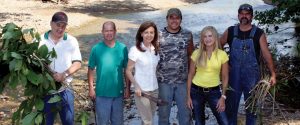 Before your shipment of Synergy products arrives at your doorstep, before the products are manufactured and packaged, and before the individual ingredients and final products are tested, Lynda Hammons, Vice President of Quality Assurance, investigates and scrutinizes the source that produced the product ingredients.
Before your shipment of Synergy products arrives at your doorstep, before the products are manufactured and packaged, and before the individual ingredients and final products are tested, Lynda Hammons, Vice President of Quality Assurance, investigates and scrutinizes the source that produced the product ingredients.
Several times per year, Lynda travels to destinations around the globe to visit Synergy WorldWide and Nature’s Sunshine Products vendors for routine audits. This is, of course, after the vendor has gone through a meticulous selection process, which evaluates their processes. About 90 percent of Synergy’s vendors pass Lynda’s audits, and the 10 percent that don’t have to prove they’ve corrected the issues found during the audit before doing business with Synergy again.
Thousands of steps are taken before a Synergy product reaches a consumer’s lips, but each step holds great importance considering the end goal: enhancing global health. There isn’t a measure Synergy would not take to ensure the safety and potency of its products. The fact that Synergy’s Quality Assurance team actually conducts regular vendor audits sets it apart. Countless companies rarely or never visit the sites where their product ingredients are harvested or manufactured.
“I’ve visited a number of vendors who are prepared to take me out to lunch and give me a tour of their facility,” Lynda said, “and they are amazed when they realize I am serious about doing the audit. There are a lot of companies out there that just aren’t taking the time to do these critical inspections.”
The vendor selection process begins in Purchasing. If a new product calls for never-before-used ingredients, Purchasing searches for vendors from China to Germany to California. The Quality Assurance team works with Research and Development as well as Purchasing to perform an onsite audit once a vendor passes the initial round of screening. Today, many of the company’s preferred vendors have been supplying raw materials to Nature’s Sunshine since its conception in the 70s.
“We don’t go for the cheapest, and we don’t switch vendors to get a better deal,” Lynda said. “We enter into our vendor relationships with the intent to have a long-term partnership with them, however, that doesn’t mean we stop testing the materials they give us. If we’ve been getting pure raw materials from a vendor for 40 years, it doesn’t matter. We still take the time to test every batch of product that comes into the manufacturing facility.”
New vendors must be audited before Synergy uses any of their materials, while existing vendors are audited every 2-3 years. Risk assessments based on country, material, and supplier, are conducted each year and play a part in deciding which existing vendors are due to be audited. China’s botanical vendors are deemed “high risk” when considering Synergy’s quality standards, which is why the Quality Assurance team visits often and will spend three weeks in 2016 auditing all of its China vendors.
Lynda and her team make their expectations clear before beginning an audit, and though Lynda is a stickler for quality, she wants the vendor to pass the audit and works with them to see how she can help them meet Synergy standards. Helping a vendor often includes giving them a product forecast, testing method expectations, and other specifications. This is why Purchasing and Quality Assurance request audit meetings before the actual audit begins. This is where vendor relationships are formed.
When Lynda begins inspecting a supplier’s facility, she makes sure that they follow Good Manufacturing Practices (GMP), which is a system that was created to minimize the risk of any pharmaceutical production that cannot be eliminated through testing the final product. Synergy products are also tested and manufactured following GMP requirements. An audit lasts a minimum of eight hours, and the length of the audit largely depends on how difficult it is to extract or produce the needed material.
The process begins by overseeing every step a particular product goes through, starting with receipt of the material to warehousing. During this process, the facilities are evaluated, including the bathrooms where the availability of soap and hot water is confirmed. Vendors without access to hot water for proper employee hygiene fail immediately. Of course, the facilities need to be clean and well maintained. Then, the vendor’s quality control labs are evaluated to make sure that the vendor’s quality processes match Synergy’s. Before raw ingredients even reach the Nature’s Sunshine Products manufacturing facility, they’ve already been tested many times to confirm their purity and potency.
Perhaps the most time consuming part of vendor audits is assessing the vendor’s documents. Lynda asks for random sanitation, quality control, specification, stability, pest control, GMP training, employee training, calibration, validation, environmental micromonitoring, change control, and recall procedure documents, to ensure the vendor maintains consistent, clean, and safe manufacturing processes.
Lastly, Lynda speaks to the vendor about their green initiatives. What are they doing to be eco-friendly? What do they do with hazardous waste? How do they maximize their energy efficiency? How do they recycle? Are they involved in any sustainability projects? Synergy wants to partner with and support suppliers who are passionate about doing their part in preserving the Earth. Synergy’s Quality Assurance team doesn’t let vendors get away with anything. When vendors travel to the Nature’s Sunshine Products/Synergy WorldWide manufacturing facility, they are amazed, and they often tell Lynda that they wish they had seen the facility before their audit to fully understand what kind of a company they were up against.
“It’s wonderful to work for a company that supports every step in the quality process,” Lynda said. “We want to help as many people as we can with our products and opportunity, and in order to do this we cannot have anything but the best.”
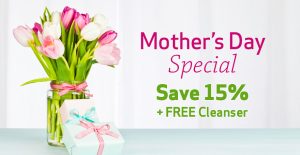 Good news! Synergy is extending its skin care special, featuring savings of more than 15% on the entire TriAction System, plus a FREE bottle of Elemence Cleansing Foam included with every purchase!
Good news! Synergy is extending its skin care special, featuring savings of more than 15% on the entire TriAction System, plus a FREE bottle of Elemence Cleansing Foam included with every purchase!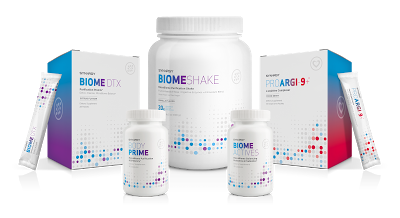
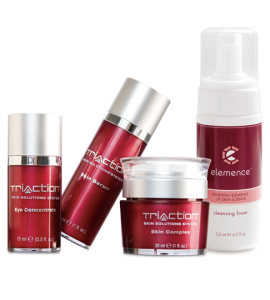 ORDER NOW
ORDER NOW Good news! Synergy is extending its skin care special, featuring savings of more than 15% on the entire TriAction System, plus a FREE bottle of Elemence Cleansing Foam included with every purchase!
Good news! Synergy is extending its skin care special, featuring savings of more than 15% on the entire TriAction System, plus a FREE bottle of Elemence Cleansing Foam included with every purchase! ORDER NOW
ORDER NOW 2016 will be a groundbreaking year for North America, and Synergy executives are eager to reveal why.
2016 will be a groundbreaking year for North America, and Synergy executives are eager to reveal why.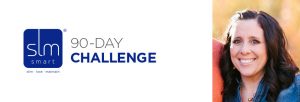 As the last month of the SLMsmart 90-day Challenge approaches, we’re checking in with our faithful challengers to gauge their progress. All of the Challengers have followed the exercise, diet, and Synergy supplement guidelines closely in pursuit of their goals. We can’t wait to share the final results and commend our diligent Challengers for the leaps they’ve made toward better health. You will be amazed by the work they’ve accomplished. We can learn a lot from these individuals!
As the last month of the SLMsmart 90-day Challenge approaches, we’re checking in with our faithful challengers to gauge their progress. All of the Challengers have followed the exercise, diet, and Synergy supplement guidelines closely in pursuit of their goals. We can’t wait to share the final results and commend our diligent Challengers for the leaps they’ve made toward better health. You will be amazed by the work they’ve accomplished. We can learn a lot from these individuals! Before your shipment of Synergy products arrives at your doorstep, before the products are manufactured and packaged, and before the individual ingredients and final products are tested, Lynda Hammons, Vice President of Quality Assurance, investigates and scrutinizes the source that produced the product ingredients.
Before your shipment of Synergy products arrives at your doorstep, before the products are manufactured and packaged, and before the individual ingredients and final products are tested, Lynda Hammons, Vice President of Quality Assurance, investigates and scrutinizes the source that produced the product ingredients. Professional boxer Malin Hermansson has been putting every ounce of focus into her training since her parents gave her a punching bag at 14 years old.
Professional boxer Malin Hermansson has been putting every ounce of focus into her training since her parents gave her a punching bag at 14 years old.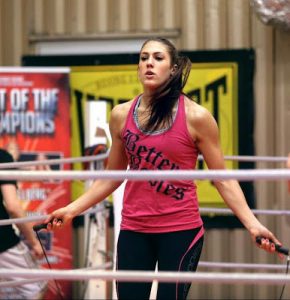 She hung the bag on her front porch where she would jump around and hit it. It didn’t take long for her to fall in love with the sport. Her love of boxing strengthened from then on. Raised in Fagersta, Sweden, Malin didn’t waste any time in beginning her training.
She hung the bag on her front porch where she would jump around and hit it. It didn’t take long for her to fall in love with the sport. Her love of boxing strengthened from then on. Raised in Fagersta, Sweden, Malin didn’t waste any time in beginning her training. At about this time every year, sunshine leaks through windows revealing the dust that accumulated during the winter months on shelves, windowsills, and baseboards. Much like the interiors of our homes, our bodies deserve just as much attention.
At about this time every year, sunshine leaks through windows revealing the dust that accumulated during the winter months on shelves, windowsills, and baseboards. Much like the interiors of our homes, our bodies deserve just as much attention.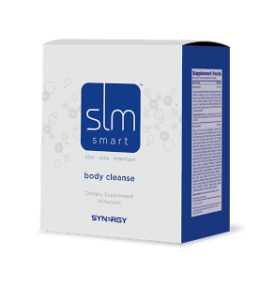 In addition to using this powerful formula, try these in-season, high-fiber vegetables that will enhance your internal spring cleaning and get you on track to better health:
In addition to using this powerful formula, try these in-season, high-fiber vegetables that will enhance your internal spring cleaning and get you on track to better health:
 Yesterday, March 20, was officially the first day of spring. Don’t let the groundhog tell you any different!
Yesterday, March 20, was officially the first day of spring. Don’t let the groundhog tell you any different! Team Members are charging full steam ahead in pursuit of becoming Elite Honors qualified for the first time or maintaining the Elite Honors title. The Elite Honors program is streamlining the way organizations do business with Synergy WordWide while maximizing each Team Member’s earning potential. Team Members following the program are seeing the extra rewards that are made possible through the Go Elite promotion as they continue doing what they’ve been doing all along—building their Synergy businesses.
Team Members are charging full steam ahead in pursuit of becoming Elite Honors qualified for the first time or maintaining the Elite Honors title. The Elite Honors program is streamlining the way organizations do business with Synergy WordWide while maximizing each Team Member’s earning potential. Team Members following the program are seeing the extra rewards that are made possible through the Go Elite promotion as they continue doing what they’ve been doing all along—building their Synergy businesses.